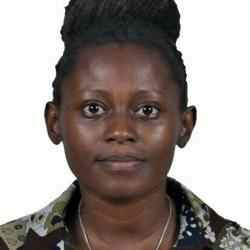Introduction
Through Ocean Planet, Kirsten Forsberg is educating and empowering coastal communities to sustainably manage their marine environment while also becoming primary players in developing comprehensive and mutually beneficial collaboration with other organizations, businesses, and governments that operate in the ocean ecosystem.
The New Idea
The Pacific Ocean is one of Peru’s most valuable resources and has supported its major fishing industry for decades, but in recent years industrial exploitation combined with a general cultural disregard for the sea has left major strains on the ecosystem, threatening its income from fishing and endangering the sustainability and viability of its marine ecosystem. With Ocean Planet, Kirsten has developed a comprehensive community-based strategy to conserve, protect, and better take advantage of the marine and coastal environment for the benefit of all. Kirsten fundamentally seeks to sensitize and mobilize the community to become agents of change in their local marine and coastal environments. This inclusive, grassroots component is innovative and nurtures a sense of belonging and ownership over the marine area and the actual and potential resources that the ocean can offer. Kirsten teaches the community to study and produce the materials they need to create their own tactics in dealing with their environment, helping to enable the citizens themselves to be the guardians of the marine habitat and benefit from a less polluted and productive ocean.
Conscious of the numerous stakeholders and competing interests involved in the coastal regions, such as communities, private industry, public institutions, and the civil society, Kirsten forges “smart networks” among the actors. Through meetings, forums, and alliances, Kirsten creates consensus and dialogue between the partners that will benefit the interest of each one while also preserving the sustainability of their habitat. Schools and universities especially cooperate with Ocean Planet to promote the environmental curricula in local areas and to also contribute volunteers to the project. Kirsten is committed to treating each actor as a potential ally, rather than as the enemy: Many environmental COs have failed in their efforts by alienating the business sector, a crucial and influential stakeholder in the region. The community members take part in all of the collaborative initiatives that Kirsten convenes to share their ideas and also learn strategies to participate actively at the stakeholder table, as they are the ultimate beneficiaries of the program.
Ultimately, Kirsten has created a model that pursues sustainable and integral development of the coastal region. Currently she is piloting Ocean Planet in Tumbes, a small coastal municipality in northern Peru that is located in one of the five major oceanic biodiversity hotspots in the world. Through her association of the local, private, government, and citizen sectors, which work on commonly identified problems and build from one small success toward bigger success, Kirsten is creating unique methods to sustainably manage the marine resources. Because she empowers the communities to carry out their efforts by themselves rather than accompanying them step-by-step, she will be able to expand rapidly without over-committing herself. Furthermore, the physical nature of the ocean demands a nationwide and even regional strategy to address the various primary and secondary environmental challenges. Kirsten plans to use this prototype as an example of the positive cooperation that can emerge and then find other communities along the Peruvian coast that would benefit from the integral development model. Her existing contacts in Tumbes will also help multiply her network of partners that can work together in these locales until Kirsten has reached national impact. Eventually, she dreams of an Ocean Planet that can span the entire oceanic hotspot, including Peru, Ecuador, Colombia, Panama, and the globe.
The Problem
More than 29 million people, over half the population of Peru, live along the coast and depend directly on marine resources in their normal life, ranging from the significant fishing industry to their daily diet. Despite this close proximity with the sea the general population has kept its “back to the ocean,” focusing more on terra firma than the bountiful yet fragile marine ecosystem. Initiatives to preserve the environment are concentrated almost exclusively on land resources, such as the mountains and Amazon rainforests that cover the eastern portion of the country, while neglecting the most important resource of all; the sea. Such reduced sensitivity to the ocean gives ample leverage to large extractive industries that generate pollution and endanger the health and livelihood of the citizenry. Kirsten attributes this neglect to an overwhelming lack of consciousness of the sea’s resources, even up through an educational curriculum that highlights terrestrial ecosystems. For example, basic material on protecting the environment only makes recommendations on conserving trees in the forest without mentioning the ocean. Partly as a result of this land-centric predisposition, Peruvians in general do not realize that the sea has a finite supply: A survey performed by Kirsten found that 50 percent of the population believed that fishing was an inexhaustible resource. By not understanding the value of the marine ecosystem and its endangerment, Peru is setting itself up to face the catastrophic consequences of overexploitation and pollution.
As Peru has grown and its economy diversified, the mining, fishing, petroleum, and tourism industries have multiplied to the detriment of the ocean. Mining and petroleum industries have been booming for twenty years, and have already caused major environmental degradation by ejecting pollutants in the rivers and oceans and disrupting natural cycles. The fishing industry itself has declined over recent years due a reduced supply of fish in the ocean—a consequence of past overfishing. Tourism as well can be a major source of damage to coastal communities, but since it generates revenue for the local economy, governments are reluctant to enact environmental protections that might inhibit further growth. The unintended consequences to the marine life can be devastating. Tumbes, the community where Kirsten has piloted Ocean Planet, is situated in a world-renowned ecological “hotspot” featuring over 545 marine and coastal species and the largest diversity of marine resources in the region. Meanwhile, artisan fishermen account for 8.5 percent of the region’s GDP, and some 39,000 tourists visit the area, causing potentially negative health consequences to over 200,000 people in terms of the toxic agents released into the water. These implications are not isolated to Tumbes alone, as the ocean can distribute the pollutants throughout the region.
No concerted and productive effort exists to prevent these environmental problems and promote sustainable marine management, even though they negatively affect all actors involved. The fishing industry especially is a major contributor of the Peruvian economy. However, overfishing and degradation of coastal water places the largest corporations at risk of losing its supply, causing a “Tragedy of the Commons” to occur in the Peruvian oceans by fiercely competitive businesses. The fishing companies do not coordinate among themselves to commit to sustainable long-term fishing methods that would allow all parties, including and especially the private sector, to benefit and continue earning profit. At the same time, together the businesses do wield extensive power and disenfranchise the local coastal communities, who do not have a role or means to voice their significant stake in the health of their sea. An absent or feckless government either legitimizes or even enables the fishing industry to continue to exploit the marine resources while not perceiving any advantage in defending these frequently poor municipalities. Public environmental agencies also suffer from a terrestrial bias, and they place minimal effort on maintaining the ocean habitats. Finally, the environmental citizen organizations (COs) in Peru are often shortsighted and confrontational in their advocacy toward the government and the private sector, finding little common ground and meaningful compromise. Otherwise, these COs can be overly focused on technical research and activism on an isolated local level. The lack of an integrated and holistic marine policy keeps the local populations out of the dialogue, treating them as passive subjects rather than essential participants in determining the future of their own ecosystem.
The Strategy
Rather than apply a public policy-based or technical solution to address the environmental degradation of Peru’s ocean habitats, Kirsten has developed a bottoms-up approach focused on sensitizing the communities that live there and engaging them in productive and meaningful alliances with the other organizations, institutions, and businesses that are all present in the environment. Constituted in 2009 as a non-profit organization, Ocean Planet uses education and research, carried out by the community members themselves, to help the coastal populations begin to value the ocean and become capable of making informed and comprehensive decisions about the sustainable use and management of the environmental resources. Kirsten directs the strategy and project planning while overseeing a small, modestly paid staff of four people and a team of volunteers from Lima and Tumbes.
Without basic knowledge or understanding of the ocean, Kirsten says, the coastal communities will not be able to take an active role in determining the future of their environment. She works with educational institutions in the area, ranging from primary schools to universities, to adopt new curricula and pedagogical techniques that integrate marine biology and ecology into daily learning. Her Network of Marine and Coastal Educators consists of teachers and administrators in public and private schools that design a context-specific curriculum, produce didactic materials and organize meetings, forums and activities for students and other faculty members. Rather than providing the schools with a prepared curriculum, Kirsten’s team collaborates with the network to design and adopt the tools themselves, which entitles the community members to more responsibility and authority over the education. Ocean Planet accompanies the schools and communities as they gradually introduce marine themes into their plans of study, with the eventual hope that the initiative can influence the federal education curriculum.Kirsten’s network currently includes more than thirty committed schools whose projects have benefited a few thousand students.
Ocean Planet backs up its education model with applied scientific research into the ocean habitats. Unlike other technical COs however, Kirsten equips the communities themselves with the research skills rather than handing them a prepared report. Volunteers, students, and local organizations participate in research trips to observe the coastal ecosystems, prepare hydrological tests to evaluate levels of contamination, and study the wildlife in detail. They also interview local community members and representatives of businesses operating in the area to assess the environmental consequences of the commercial activities. The research is used to develop a local strategy for the community sustainable management of the marine resources. At the same time, the local populations “learn by doing,” performing the research and thus complementing through hands-on activities the new marine-focused curriculum that Ocean Planet has created.
The second key element of Kirsten’s strategy involves forging partnerships and consensus that Ocean Planet facilitates between various actors. Kirsten fuses collaborations among public institutions, private businesses, civil society associations, volunteers, and individuals living in the affected areas. These partnerships seek to create sustainable mechanisms and enterprises that generate economic alternatives for the community and the poor fishermen in the region, while also contributing directly to the preservation of the marine habitat, and that are also not counter-productive to the operating businesses. In Tumbes, for instance, Ocean Planet works with the transportation company Oltursa and with large associations of commercial lobster fishermen. Ocean Planet helps strategize effective yet feasible small-scale initiatives to begin the collaborations. Modest successes of collaboration between the community and the businesses are key, as they make evident to both parties that such win-win partnerships are possible, and they serve as building blocks for later projects. For example, Ocean Planet helped lead a coalition composed of community representatives and the commercial fishermen in Tumbes to strengthen local government regulations on the use of nets, which can endanger the lives of sea turtles. The coalition relied on applied research on the turtle mortality rates in the Tumbes area carried out by the residents. This small but significant victory has opened doors for Kirsten and raised the community’s confidence in its ability to achieve such successes. Kirsten has begun to construct relationships with oil companies as well, perceiving a major inflection point in her work and in her capacity to forge more partnerships. She has also started to work with the first large fishing company, Pesquera Diamante, using their nascent corporate social responsibility program as the point of contact and leverage for Ocean Planet.
On the public policy level, Kirsten helps connect the communities with government agencies and public education institutions. In Tumbes, Ocean Planet works with the regional administrations for education, publication, and national resources to manage the local educational projects. Agency representatives further participate in the events, forums, and workshops the organization hosts for the general public. Kirsten expects that such achievements as the fishing net reform will become prototypes for larger initiatives that affect provincial and later national policy. She has also been recognized with awards from the Environmental Ministry and the international Kinship Foundation, lending legitimacy to her work before other government officials. In the future as she begins her nationwide expansion, Kirsten foresees collaborating with the equivalent agencies in Tumbes as in the other coastal communities, in addition to the federal ministries.
In the long-term, Kirsten plans on converting the cross-sector alliances she has forged into Smart Networks, underscoring sustainable ocean initiatives as common practices. The corporate social responsibility tactic will give Ocean Planet significant access into larger industrial companies and enable the local communities to keep a voice and presence in the businesses’ strategies. Kirsten has also begun to pilot new methods of generating revenue for her organization, such as marketing its expertise in community empowerment, pedagogical methods relating to the environment, and establishing alliances among the private, public, and citizen sectors. She also has developed a merchandising scheme that will help publicize the work of Ocean Planet and provide a source of revenue to supplement the foundation grants and corporate support which she has begun to receive. The organization will leverage its impact by transforming into a catalyst of large-scale environmental change as the capable facilitator of its collaborations. Although currently the project is in a very early stage, its successes in Tumbes have given Kirsten credibility that she expects to use as she expands to other coastal communities.
The Person
Kirsten grew up with an intimate relationship with the coastal environment. Her great-grandfather, a merchant marine, immigrated to Peru with his wife. There he launched an artisanal fishing business that quickly turned into a large industrial exporter. Kirsten’s grandfather consolidated the corporation, which developed the first use of fish flour, a byproduct of the preparation of the resource for commercial food. Spending time with him and her father, who worked in the communications industry, inspired Kirsten with the values of entrepreneurship.
Due to the violence in Peru during the 1980s, her family relocated to Canada, where Kirsten spent most of her childhood. She especially loved spending time in the outdoors in the natural reserves and parks near her home in British Columbia. Returning to Peru at age 8, Kirsten studied biology while at the same time founding clubs dedicated to environmental conservation. At her private primary school, she established an organization to protect the animals living in the school’s small on-site zoo. Always involved in multidisciplinary extracurricular activities, Kirsten became devoted to her studies of biology through her time at the Molina National Agrarian University. Having attended privileged schools, the interactions Kirsten had with students from diverse socioeconomic backgrounds and experiences influenced her desire to also become involved in social subjects. Kirsten felt a strong urgency to protect the ocean, a natural habitat that she had early on fallen in love with, and to lead major social change together with the communities that lived along the coasts.
In 2007 Kirsten moved to Brazil to volunteer with the Tamar Project, a center dedicated to the conservation of sea turtles. Witnessing firsthand the injury and death of turtles captured in industrial fishing nets, she felt motivated to return to Peru, observe the native species of her country, and help find a solution to environmental degradation. As part of her undergraduate thesis, Kirsten studied firsthand the coastal devastation in Tumbes, where her direct contact with the residents in the local community helped her understand the importance of employing inclusive, participative, and multidisciplinary techniques to achieve sustainable conservation of the ocean. Her thesis also laid the groundwork for many of the successful initiatives she has led since founding Ocean Planet in 2009, such as coalescing her network of local educators. Although she is still young and her organization is still in an early stage, Kirsten has found her vocation in Ocean Planet; bringing together her passion for the ocean ecosystem and for positive social change through dialogue and collaboration. She is already a nationally recognized leader in marine conservation, thanks to her awards from the Peruvian Ministry of Environment and her International Youth Foundation award. Kirsten envisions herself promoting a program that educates and prepares local communities to become the paramount stakeholders in sustainably managing their local ocean resources.

 Tile image
Tile image

